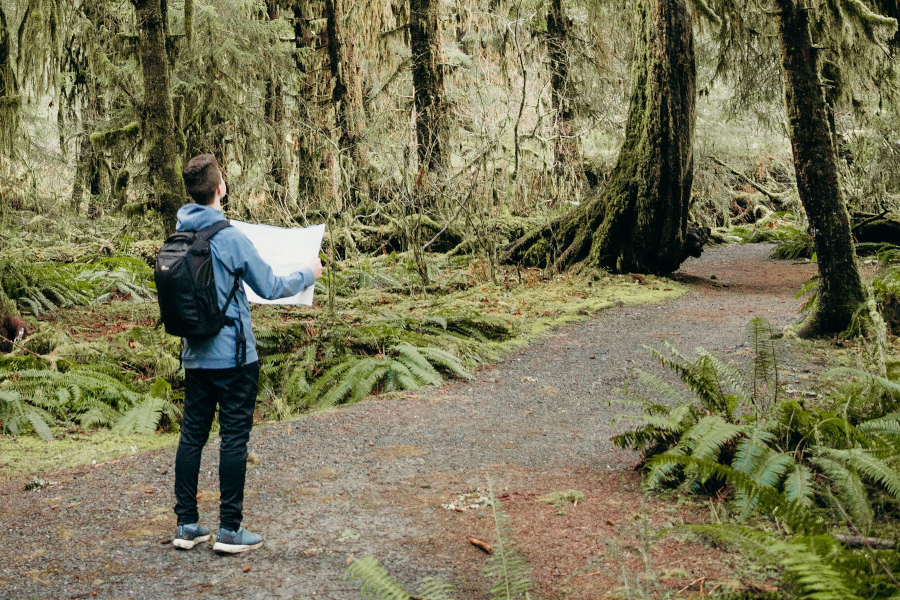Find Your Why
Unfolding News
Most of these articles detail things I was learning several years ago. This article describes a recent conversation with my second coach.
In October of this year, I mentioned to my coach that I felt like I needed a change. There was a certain level of satisfaction that seemed missing from my work and life. I had been meaning to start on creative work and suggested I might start on that. She had an idea to take my plan to the next level.
How Do I Discover What I Really Want?
The year was ending. I was about three months into my coaching routine. I had made some progress on the key things that made me choose to work with a coach. It was time for setting goals for the upcoming year.
Change Your Point Of View
Let’s say you find yourself with an unending stream of work to do. You start with the most urgent and important things on your list. You work smarter instead of harder. You start your day early and finish late. At the end of the week, you have accomplished quite a bit of useful work. The list is longer than ever before. How do you stay motivated when you can never be done?
When You Want To Give Up
After I discovered the power of mission at work, I expected things to be different. I didn't expect parades or ice cream, but I expected a new sense of purpose. I expected to arrive at the beginning of my day with excitement and to leave with a sense of contented exhaustion. The universe had other plans.
Finding Purpose In Work
One of my recurring challenges over the years has been finding a sense of purpose in my work. I almost always find myself working with smart people who are really good at what they do. Being in information technology, the work has always been interesting. There were times when it was so exciting to be part of the future turning into the present. During those times, I would be at work early and lose myself in whatever I was learning. Then I would go home and work on part of the project late into the night.
No More Annual Goal Setting
Something Fresh
From time to time, I step out of the story about being coached, and write about something that is on my mind right now.
My Belief Shapes My Destiny
When I look back at all the time I spent learning and working in my coaching practice, I think the end of the second month was a turning point for me. Until that point, I was developing certainty about my outcomes and generally refreshing my memory about some tools I could use achieve those outcomes from a positive emotional state. I was using these tools to tackle immediate pain points and to guide myself toward a happier, more exciting future. If I had to categorize the kind of work I was doing, I would say it was all focused on future outcomes.
Questions and Focus
In the previous article, we looked at how to tap into the power of physiology to change the way we feel in the present moment. We learned that posture, breath, and facial expression were closely related to our emotional sate. Physiology is both an indicator of our current state and a predictor of our future state.
The Power of Physiology
A huge part of success at a certain point in our development is using our limited resources in efficient ways. We use goals and tasks to provide focus so we use our time effectively. We can use budgets and our bank balance to use our financial resources in a way that supports us in reaching our goals. If we want to manage our mental, emotional, and physical energy, we can use focused attention, questions, and physiology. Eventually, I learned how to use all three. The first tool I learned about was physiology.
Goals, Outcomes, Success
My coaching experience, much like each new year, started with a list of outcomes I wanted to achieve. After the first two or three sessions, my personal outcomes were centered around my body, my finances, and having a tidy home. My professional outcomes included not dreading work, building my skills, and building up the people who reported to me.
Why is the Kitchen Table Defeating Me?
One of the things that was a recurring issue -- for years -- was the kitchen table. Often the entire surface was covered, one end with mostly tidy piles of books and papers, and the other end hidden by a more chaotic mix of unopened mail and unhomed items that might be more appropriately stored in the garage or at work. In the center was sometimes an island of sanity occupied by an arrangement of cut flowers.
Preparing for a Session
Between calls with my coach, I had two goals. First, I wanted to meet the commitments I made in my previous call. We called these commitment my homework. Second, I wanted to complete my session prep form for my coach. All of this was due the day prior to my next session.
Introduction: The First Session
Going into my first session with my new coach, I was fairly well prepared by the organization I was working with. They had me complete a questionnaire that helped me gather my thoughts about my goals, what was going well, what was not going well, and how I would know I was receiving value from coaching. This gave my coach and me a solid foundation to start our work.
Why Did I Choose Coaching?
I started being coached in the latter part of 2015. At that time, I had been working for the University of Missouri for twenty-three years, first as a programmer, and more recently as a team lead and scrum master.















